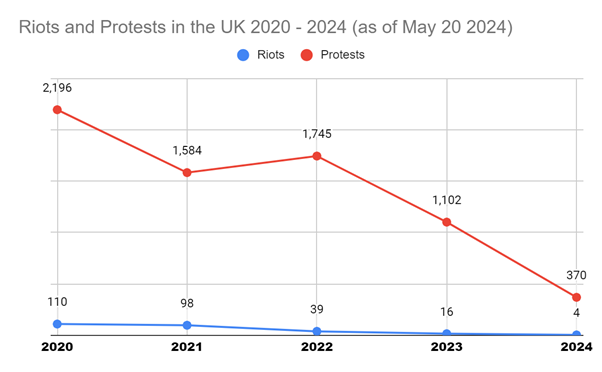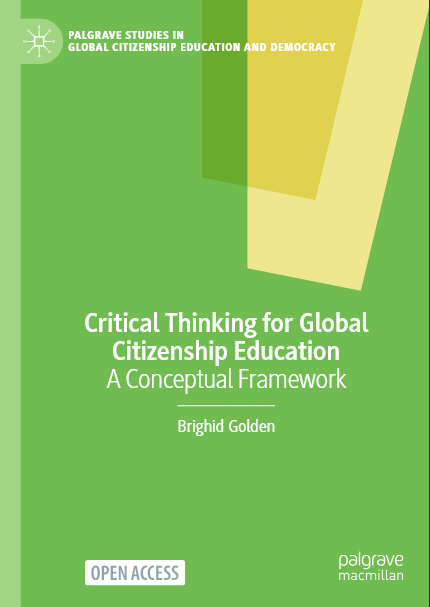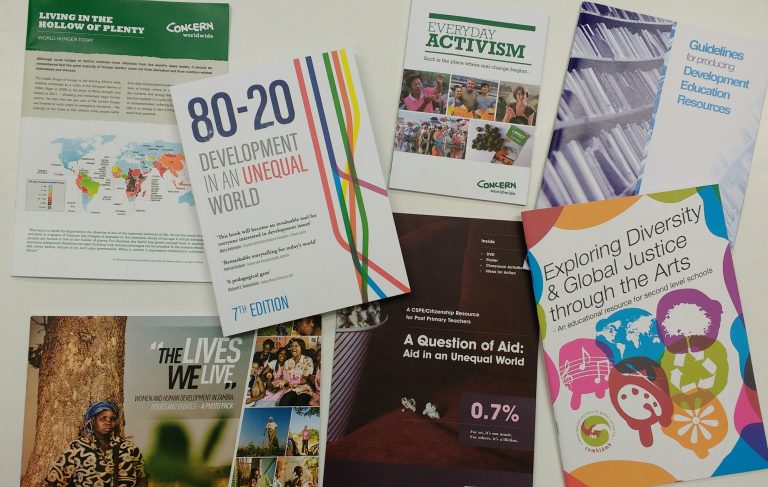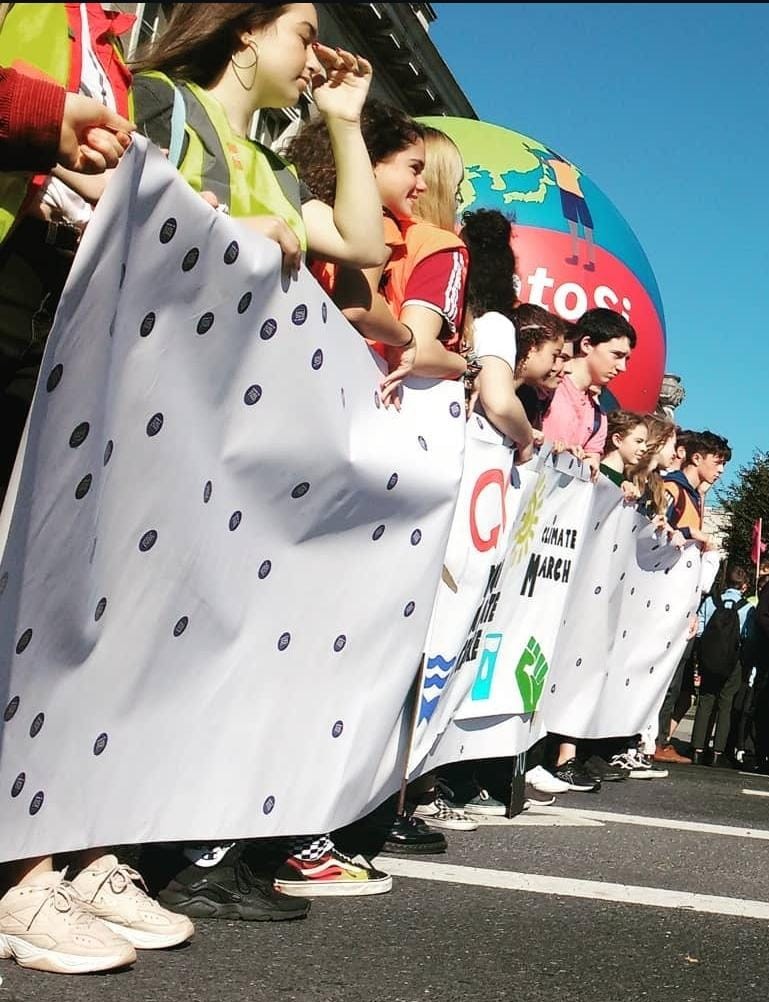What The Fact?
Dover, United Kingdom. Prime Minister Rishi Sunak gives a press conference after visiting a Border Force cutter boat in the Dover Strait. Picture by Simon Dawson / No 10 Downing Street via Flickr (CC BY 2.0 Deed)
The Claim
Amidst protests being attended by tens of thousands of people in the UK in recent months, Prime Minister Rishi Sunak made the following claim in late February 2024:
“[There is a] growing consensus that mob rule is replacing democratic rule”.
In recent years, climate protests have become commonplace in the UK, as well as pro-Palestine marches (and counter-protests), and marches to stop deportations to Rwanda. Tens of thousands of protestors have attended marches and engaged in nonviolent resistance across the country.
The British government has imposed new anti-protest laws following protests related to the climate crisis, systemic racism and Palestine.* These include ‘protest banning orders’ which ban individuals from attending protests, and vague laws which give police the right to arrest protestors if ‘too noisy’, ‘slow walking’ or ‘likely to cause a nuisance’, and considerably lowering the threshold for banning a protest completely.
As Amnesty International UK’s law and human rights director, Tom Southerden said:
“The UK has undergone a major crackdown on protest rights in recent years, with peaceful protest tactics being criminalised and the police being given sweeping powers to prevent protests taking place.”
So, is ‘mob rule’ really replacing ‘democratic rule’?
The Verdict

The claim is rated false based on the best evidence publicly available at this time.
*Protests in recent months and years have largely centred around the climate crisis and the conflict in Gaza. Sunak, and his Conservative Party predecessors, have frequently ignored advice from climate scientists and ditched green legislation despite the world facing its sixth mass extinction event.
Since the war started in Gaza in October 2023, Sunak and his government have supported Israel (with arms, finance and political support) and failed to call for a permanent ceasefire, despite the ‘plausability’ of genocide against the Palestinian people.
The Evidence
While Sunak states that there is a ‘growing consensus’ (in relation to mob rule), he does not back this up with any evidence.* In fact, desire amongst the British public for a ceasefire in Gaza was at least 66% at the time of his comments. This has been the key demand for protestors on this issue. So while Sunak may claim these protests are ‘mob rule’, it is actually just democracy in action, with the majority of Britain wanting their Prime Minister to change his government’s policy.
Climate change, the other major cause of protests in recent years, also has the support of the British public. A 2022 poll conducted by Omnisis found that 66% of people in the UK support taking non-violent direct action to protect the country’s nature, while in another YouGov poll, 82% people surveyed considered climate change to be ‘very or fairly important.’ So it is not clear what the ‘consensus’ Sunak mentions is.
However, it is important to note that at least four MPs have received horrific abuse for their political views in recent months, including death threats and protests outside politician’s private homes. This is unacceptable, and has rightly been widely condemned across the political spectrum, and from organisations such as the Palestine Solidarity Campaign.
Taking stock of language and phrases being used
*Rishi Sunak’s comments are not the first of this kind by his government.
They come off the back of comments such as those from Sunak’s former Home Secretary Suella Braverman. Braverman referred to pro-Palestine marches as ‘hate marches’ and claimed protestors ‘called for the erasure of Israel from the map.’ Her rhetoric and comments have been widely deemed as ‘dangerous’, ‘reckless’ and ‘inflammatory’.
This tactic of making wildly inaccurate and exaggerated claims appears to be a staple of Sunak’s government, and it is something that everyone should be aware of and take time to consider when understanding their political rhetoric.
Secondly, ‘mob rule’ is a subjective term, but Sunak appears to be using it in relation to a supposed rise in protests.
But let’s look at the data.
What does the data tell us?
ACLED is arguably the most in depth database for conflict, violence, riots and protests around the world. Since 2020, they have gathered data on Riots and Protests in the UK.
In ACLED’s data, riots are defined as ‘violent demonstrations’, while protests are defined as ‘non-violent demonstrations’.

As shown, both the numbers of peaceful protests and violent riots have decreased substantially in recent years. At the current rate, 2024 is set to see a decrease in the number of protests compared to 2023 figures, and considerably less than numbers in 2020, 2021 and 2022. Approximately 10 riots are expected, which would be a 37.5% decline compared to last year, and an 91% decrease since 2020. It is hard to validate Sunak’s comments when the numbers of both peaceful protests and violent riots are trending downwards.
It is important to note that despite this general decline in protests and riots, there is also a definite trend of democratic backsliding. For example:
- The Economist Intelligence Unit’s Democracy Index has seen the UK’s score drop from 8.54 (out of 10) in 2020, to 8.28 in 2023.
- The Freedom House Global Freedom Index measures Political Rights and Civil Liberties, both key components to a free and functioning democracy. The UK’s score has decreased from 94 to 91 (out of 100) between 2020 and 2023.
- Finally, the V-Dem Institute’s Electoral Democracy Index has also shown a decline from 0.88 to 0.85 (out of 1) in the same time period.
All three indices note that this decline is due to Sunak and his Conservative Party’s policies, rather than the general public peacefully protesting.
Sunak is correct in his assessment that there is a decline in ‘democratic rule’, but seems to misunderstand, either deliberately or accidentally, about the causes of this.
What are experts and analysts saying?
In addition to the data challenging Rishi Sunak’s claim, experts from a variety of backgrounds and sectors have also voiced their concerns and disagreement with the Prime Minister about his attempts to limit the right to protest, his claims of ‘mob rule’, his attempts to broaden the definition of ‘extremism’, and his wording more generally in relation to protests.
Almost all groups involved in protests in recent months do not call for protests at the private homes of MPs or others, something Sunak’s Conservative Party, and Keir Starmer’s Labour Party, have been highly critical of. Sunak has used this argument to clamp down on protest rights.
Sacha Deshmuke, Amnesty International UK chief executive:
“When the prime minister addresses the nation, we expect him to show leadership, not censorship…From racist language used by ministers, plans to expand the definition of extremism to directly attacking our right to protest are clear violations of international human rights laws…Peaceful protest and freedom of expression are fundamental to our democracy. We cannot stand idly by and allow the government to raze our rights to the ground.”
Chief Constable Haward of National Police Chiefs council:
“We have seen very peaceful protests [with reference to pro-Palestine marches] given the numbers which have turned out.”
“No, we don’t need a ‘broader definition of extremism’. This is a slippery slope towards the abolition of fundamental freedoms. What does it even mean to ‘undermine British values’ when there is no consensus – and certainly no legal definition – of what those values are?…Martin Luther King, William Wilberforce and the suffragettes were all viewed as ‘extremists’. If ‘extremist’ views are illegal, then the person who defines ‘extremism’ has the power to curtail free speech, freedom of religion, freedom of the press and freedom of association. This is the path to authoritarianism.”
“I very much agree with Miriam Cates on this point. What we need is proper enforcement of the laws we have against, for example, incitement to violence.”
Palestine Solidarity Campaign:
“The long tradition of freedom of protest and expression in this country is being threatened.”
Kat Hobbs, Netpol (police monitoring group) spokesperson:
“[There have been] worrying reports of police repression and surveillance at Palestine marches…The government has tried to shut it down by characterising Palestine solidarity actions as hate marches and support for terrorism…This policing is political, and it has one goal: to shut down international solidarity efforts and scare people off the streets.”
Metropolitan Police statement:
“The vast majority of those joining protests have done so in a lawful and peaceful way but a minority have broken the law and arrests have been made.”
Tom Southerden, law and human rights director at Amnesty International UK:
“Talk of ‘mob rule’ wildly exaggerates the issue and risks delegitimising the rights of peaceful protest…Freedom of expression and assembly are absolutely fundamental rights in any free and fair society. The UK has undergone a major crackdown on protest rights in recent years, with peaceful protest tactics being criminalised and the police being given sweeping powers to prevent protests taking place.”
Open Letter from 46 NGOs, including Oxfam, Amnesty International, Greenpeace UK, Quakers in Britain and The Runnymede Trust in relation to the draft ‘Defending Democracy Policing Protocol’:
“The protocol outlines new restrictive proposals, some of which relate to protest locations. Many locations listed, such as the Palace of Westminster, outside constituency offices, town halls or the venue of a political event are perfectly normal locations for protest…The Protocol misrepresents the law and risks having a chilling effect on individuals’ ability to exercise their right to protest in this country.”
“Our organisations have emphasised the necessity of using considered language in recent months. Yet the deployment of certain terms, such as ’extremism’, ‘radical’, ‘hate mobs’, by your government creates division and exacerbates existing fears amongst minoritised communities.”
Dal Babu, former chief superintendent in the Metropolitan Police:
“Language is important. I don’t think that kind of language is helpful. We’ve heard Suella Braverman, the former home secretary, talk about hate marches. If you’re going to appeal to people to demonstrate less, you’re actually going to have unintended consequences in which more people come out and say ‘we’re not mob rule’.”
Conclusion
Both the data and the analysis from NGOs, protestors, watchdogs and police clearly show that while there have been large protests in the UK (and worldwide) in recent months, this is far from a shift to ‘mob rule’, as Sunak claims.
In fact, it can be argued that it is largely due to his party’s policies in recent years which have looked to stifle freedom of expression and assembly for millions of people in the UK, that there has been a move away from democracy.
Verdict
Based on the ‘What the Fact?’ scales guide, and the significant amount of evidence outlined above, the claim made by Rishi Sunak is rated as False.
The claim is inaccurate based on the best evidence publicly available at this time.
developmenteducation.ie’s What The Fact? supports the code of principles of the International Fact Checking Network. We check claims by influencers, from local to national to transnational that relate to human rights and international human development.
Transparent fact checking is a powerful instrument of accountability, and we need your help. Send tips and ideas to facts@developmenteducation.ie
Join the conversation #whatDEfact on Twitter @DevEdIreland, Facebook @DevEdIreland and Instagram @developmenteducation.ie
- Kai Evans is a contributing writer with developmenteducation.ie and digital communications executive with Trócaire






